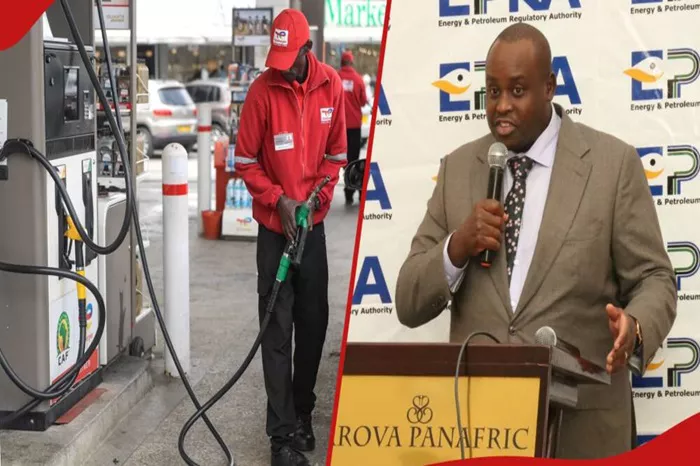The Energy and Petroleum Regulatory Authority (EPRA) has implemented a reduction in fuel prices effective from July 15 to August 14, 2024. According to EPRA’s statement released on Sunday, the price cuts affect super petrol, diesel, and kerosene, with decreases of Kes. 1 per litre for super petrol, Kes. 1.50 per litre for diesel, and Kes. 1.30 per litre for kerosene.
In Nairobi County, motorists will now pay Kes. 188.84 per litre for super petrol, Kes. 171.60 for diesel, and Kes. 161.75 for kerosene. Meanwhile, in Mombasa, the new prices stand at Kes. 185.56 for super petrol, Kes. 168.43 for diesel, and Kes. 158.70 for kerosene. In Kisumu, the prices will be Kes. 188.66 for super petrol, Kes. 171.81 for diesel, and Kes. 162.04 for kerosene.
For Nakuru, EPRA has set the prices at Kes. 187.90 for super petrol, Kes. 171.04 for diesel, and Kes. 161.27 for kerosene per litre. Similarly, in Eldoret, Uasin Gishu County, consumers will pay Kes. 188.67 for super petrol, Kes. 171.81 for diesel, and Kes. 162.04 for kerosene.
EPRA’s adjustments factor in the 16 percent value-added tax (VAT) as specified in relevant legislation, including the Finance Act 2023 and the Tax Laws (Amendment) Act of 2020, alongside revised excise duty rates adjusted for inflation per Legal Notice No. 194 of 2020.
In its previous review, EPRA had implemented larger reductions, slashing super petrol by Kes. 3 per litre, diesel by Kes. 6.08 per litre, and kerosene by Kes. 5.71 per litre. These cuts were attributed to decreased landing costs and the stabilization of the Kenyan shilling against the dollar.
EPRA further explained that the average landed cost of imported super petrol decreased by 4.65 percent from $750.95 per cubic metre in May to $716.03 in June. Diesel’s average landed cost also decreased by 1.19 percent from $690.99 to $682.73. However, the landed cost of kerosene experienced a 2.01 percent increase from $679.14 to $692.80.
The authority continues to monitor international market trends and exchange rate fluctuations to determine future adjustments in fuel prices.
Related topics:
Number 1 Fuel Oil Vs Kerosene: What Is The Difference?

